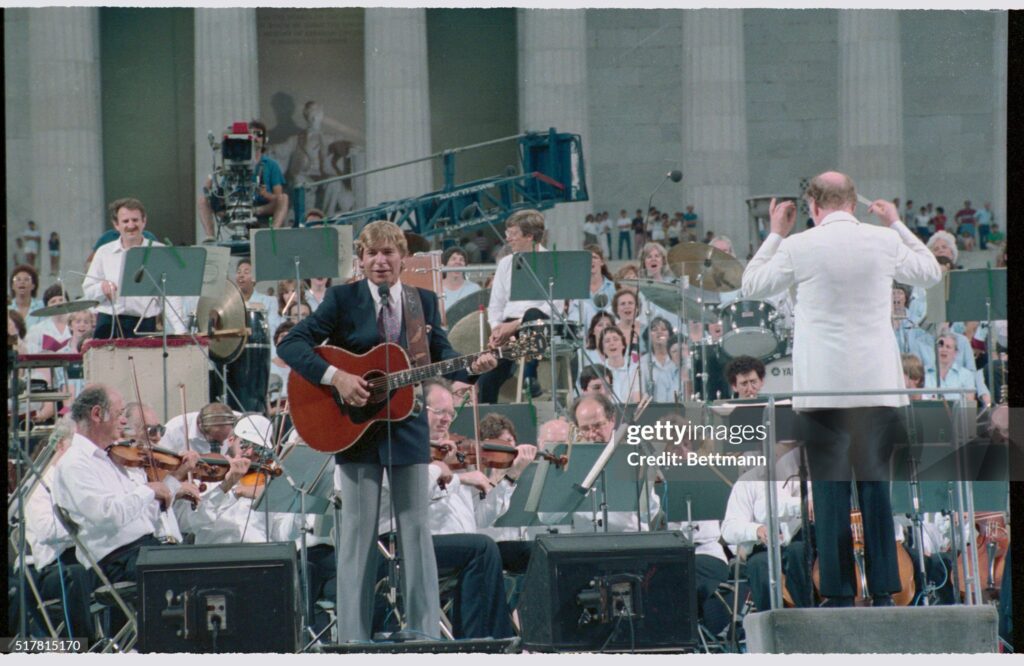
“I’m Sorry” encapsulates the profound sorrow and quiet resignation that often accompany the fading of a cherished love.
For those of us who came of age amidst the gentle melodies and earnest sincerity of the 1970s, John Denver’s voice was a familiar comfort, often carrying us through moments of quiet reflection and deep feeling. While he was renowned for his joyous odes to nature and simple living, it was in his more somber, introspective pieces that he truly bared his soul, touching a collective nerve that still tingles with recognition today. “I’m Sorry,” from his remarkable 1975 album Windsong, stands as a poignant masterpiece in this vein, a whispered confession of heartbreak that transcends mere pop song status to become a timeless elegy for lost love.
Upon its release, “I’m Sorry” didn’t just chart; it soared to the very pinnacle of American music. It achieved the rare and impressive feat of reaching number one on the Billboard Hot 100, the Hot Country Singles chart, and the Adult Contemporary chart. This trifecta of chart-topping success solidified its place as one of Denver’s most significant and enduring ballads, a testament to its raw emotional power and universal appeal. It was his third and final #1 hit on the Hot 100, leaving an indelible mark on the musical landscape of the era.
The beauty of “I’m Sorry” lies in its unvarnished honesty. It’s not a song of angry recrimination or dramatic despair, but rather a quiet, almost resigned acknowledgment of the inevitable end of something precious. It speaks to the aching tenderness of regret, the kind that settles deep within your bones when you look back at a relationship that, for reasons perhaps not entirely understood at the time, simply couldn’t last. For many, this song became the soundtrack to their own private moments of introspection, a gentle companion through the bittersweet memories of loves that flickered and faded, leaving behind only the ghost of what was. It captures that universal human experience of looking back with a lump in your throat, recognizing the role you played and accepting the quiet sorrow of an unchangeable past.
The genesis of “I’m Sorry” is deeply rooted in John Denver’s personal life, particularly the complexities and eventual dissolution of his first marriage to Annie Martell, the very muse for many of his most beloved songs, including the iconic “Annie’s Song.” While Denver himself might not have explicitly stated that “I’m Sorry” was solely about Annie, the prevailing sentiment among fans and critics alike is that it emerged from the very real pain of their evolving relationship. It captures the quiet unraveling, the realization that despite love and effort, some connections are destined to break. It’s the voice of a man coming to terms with his own role in the fracture, acknowledging the hurts inflicted, perhaps unintentionally, and the profound sadness of moving on. The lyrics echo a sense of longing for a simpler time, a yearning for what was, and the acceptance that some wounds simply don’t heal, they just become a part of who you are.
“I’m Sorry” delves into the delicate art of contrition, not in the sense of a grand apology meant to mend what’s broken, but as a tender whisper of understanding and acceptance. It’s about recognizing the irreversible nature of certain goodbyes, and finding peace in the simple act of acknowledging the pain, both one’s own and that of the other. The lyrics, sparse yet profoundly evocative, paint a picture of longing for a past that can never be recaptured, of memories that shimmer just out of reach, and the lingering presence of someone who once meant the world. “I’m Sorry” isn’t a plea for reconciliation; it’s a profound statement of empathy and shared sorrow, a recognition of the mutual pain that accompanies the end of a significant chapter.
Listening to it today, especially for those of us who remember its initial release, brings a cascade of emotions. It evokes the feeling of a bygone era, perhaps a simpler time, yet one where hearts were just as fragile. It reminds us of first loves, of difficult partings, and the quiet dignity of letting go. John Denver had a unique ability to tap into the universal human experience, and “I’m Sorry” is perhaps one of his most potent examples of this gift. It’s a song that doesn’t just ask us to remember a past relationship; it asks us to reflect on the very nature of love, loss, and the enduring echoes they leave behind in our souls. It’s a gentle, melancholic masterpiece that continues to resonate, reminding us that sometimes, the most powerful words are simply, “I’m sorry.”